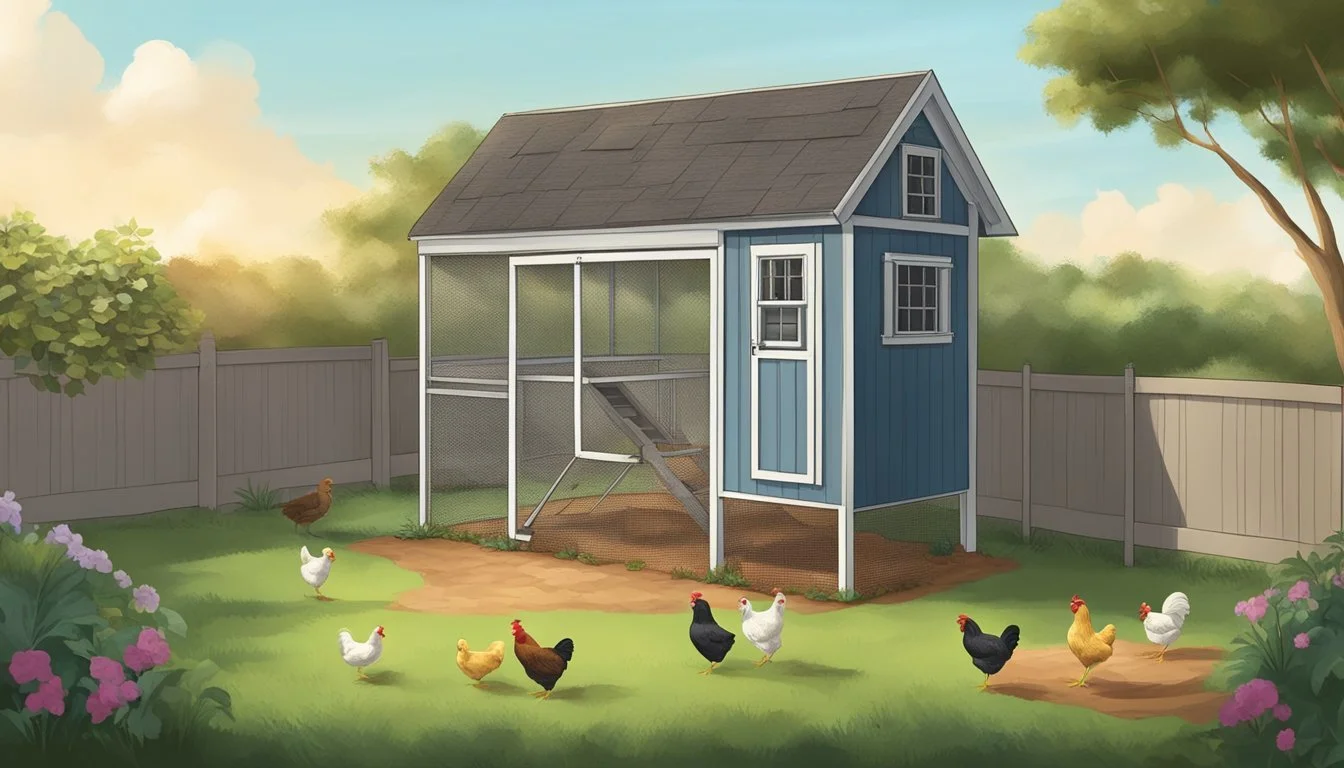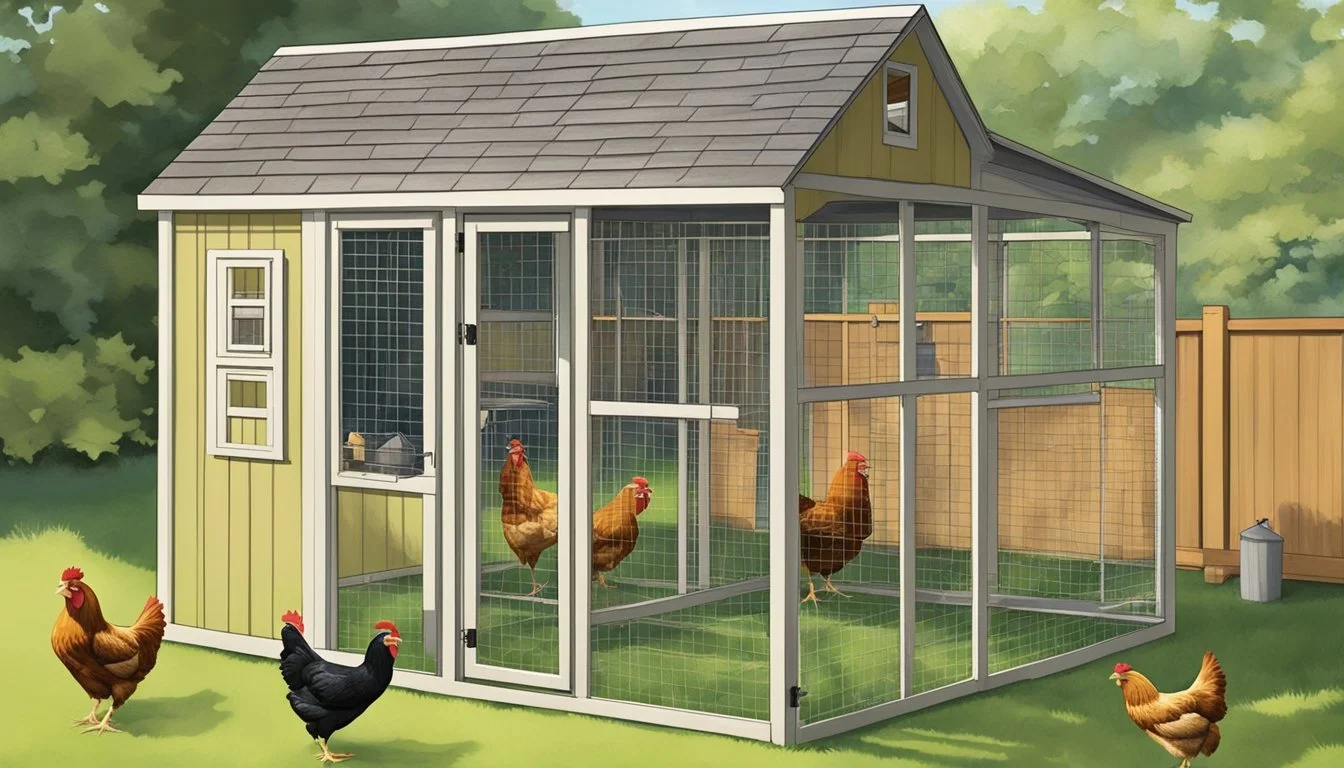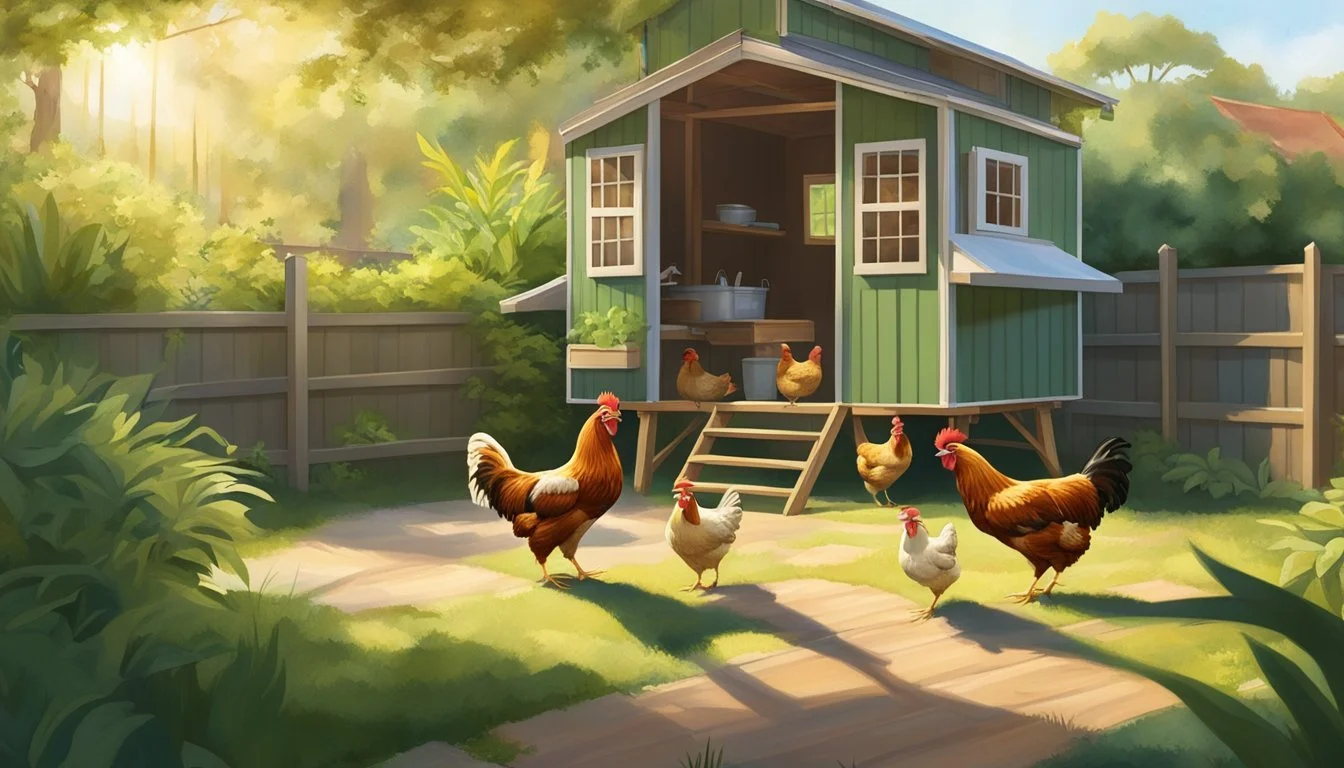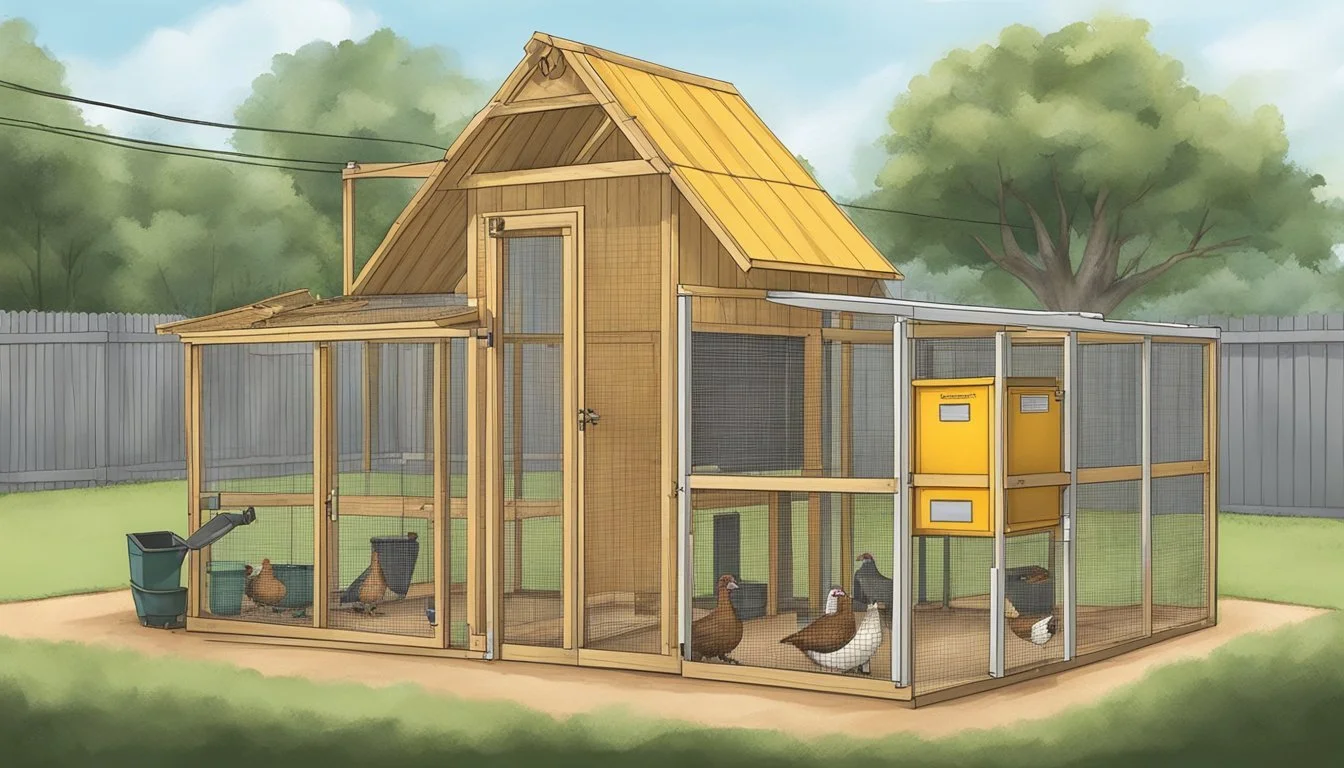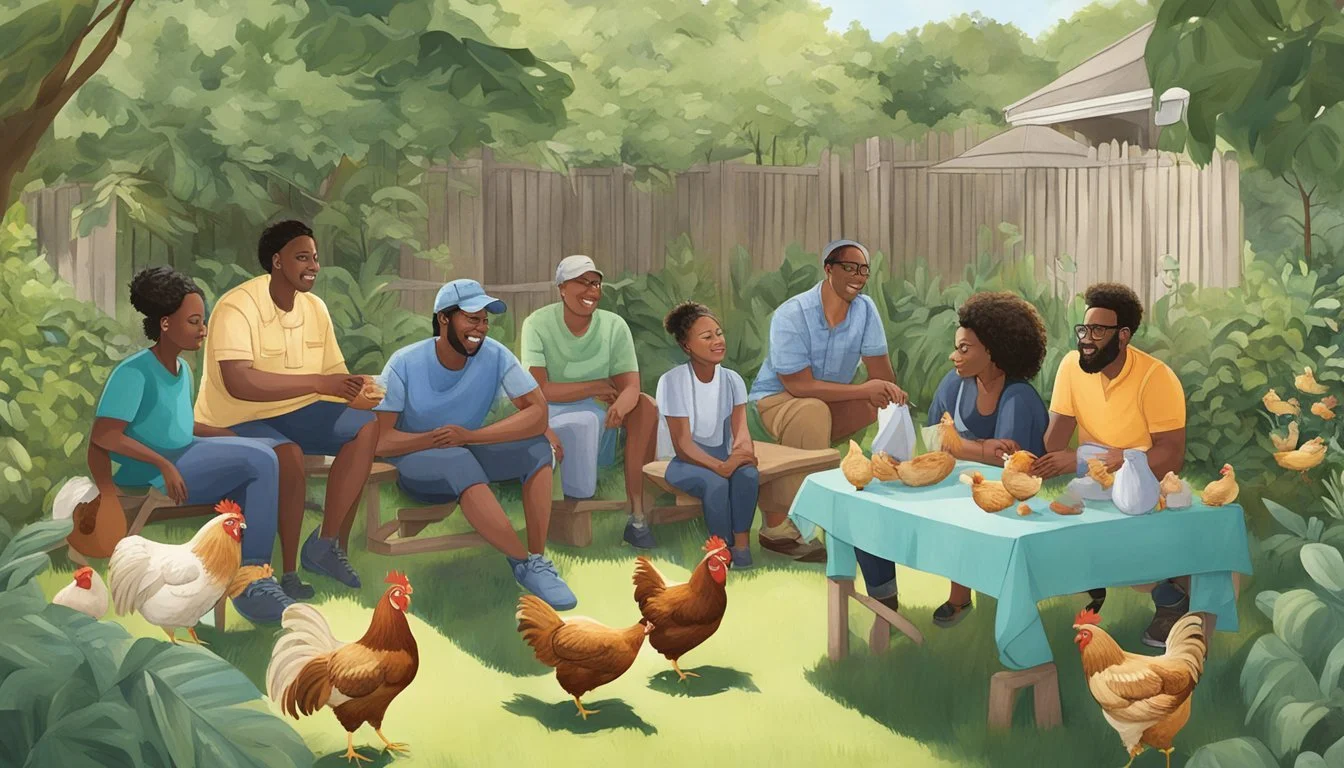Keeping Backyard Chickens in Tampa, FL
A Guide to Local Regulations and Best Practices
Backyard chickens have become a popular addition to urban homesteads, and Tampa, FL is no exception to this trend. Residents of Tampa who are looking to embrace the self-sufficient lifestyle by raising poultry can do so by observing the city's specific regulations. These rules ensure that while individuals can benefit from fresh eggs and companionship, the community standards and animal welfare are upheld.
In Tampa, the city ordinances permit residents to keep up to ten hens in their backyard, although roosters are prohibited to prevent noise disturbances. This regulation maintains a balance between urban living and agricultural practice. Those who choose to raise chickens must also comply with health and safety requirements. This includes obtaining the necessary permits and adhering to any rules related to the sale of eggs or meat, should they choose to engage in commercial activities.
The regulations in Tampa are indicative of a growing movement that supports local food production and sustainable living. By promoting responsible practices, the city helps to ensure that keeping backyard chickens is a positive experience for both the owners and the surrounding community. Whether one's motivation is fresh eggs, a desire for pets that provide more than companionship, or an educational experience for the family, Tampa's approach facilitates a harmonious relationship between city living and nature.
Understanding Local Chicken Laws in Tampa
Residents in Tampa, Florida, need to navigate a set of laws and regulations before starting a backyard chicken coop. These rules, distinct for City and County jurisdictions, are in place to ensure proper management and care of backyard poultry within the residential environment.
City and County Ordinances
The City of Tampa and Hillsborough County have established ordinances that allow the keeping of backyard chickens. It is essential to distinguish between the specific municipal codes for the City of Tampa and the broader regulations set by Hillsborough County. The City Council and County Commission may update ordinances, so staying informed of the latest guidelines is advised.
Tampa Municipal Code: Recognizes the legality of keeping backyard chickens under specified conditions.
Hillsborough County Regulations: Provides a broader framework within which residents must operate, possibly addressing the sale of eggs or meat.
Property and Zoning Restrictions
Property owners must adhere to zoning laws that govern the distance of chicken coops from neighboring homes and property lines. The restrictions ensure that the keeping of poultry does not infringe upon the rights and comforts of other residents.
Minimum Distance: Chicken coops should be a specified number of feet from adjacent dwellings.
Land Requirements: There might be stipulations for land area per animal to avoid overcrowding and to maintain animal welfare.
Permit Requirements and Processes
To legally raise backyard chickens in Tampa, FL, residents are often required to obtain a permit. This process ensures that all health and safety regulations related to poultry keeping are met and maintained over time.
Process to Acquire a Permit:
Application: Submission of a completed permit application.
Compliance: Assurance that the applicant's property complies with zoning and other local restrictions.
Approval: Awaiting the approval from local authorities before proceeding.
Tampa's approach to urban agriculture represents the city's recognition of its residents' interest in sustainable living practices. Proper understanding and adherence to these rules play a crucial role in urban animal husbandry's success within the community.
Setting Up Your Chicken Coop
Setting up a chicken coop in Tampa, FL, requires careful planning to ensure comfort for the chickens, compliance with local ordinances, and protection from predators.
Choosing the Right Coop Location
The ideal coop location is on a high point of the property to avoid flooding. It should be situated away from property lines to meet Tampa's regulatory requirements. The location must also be easily accessible for tending to the chickens and egg collection.
Coop Size and Design
Each coop should provide a minimum of 3 to 4 square feet of space per chicken inside the coop plus an additional 8-10 square feet in an outdoor run. Coops should be well-ventilated, shielded from direct sunlight, and constructed to endure Tampa's weather conditions. It's pertinent to design the coop with both nesting and roosting areas.
Security Measures for Predators and Pests
A sturdy coop with a secure enclosed area is non-negotiable for keeping predators out. All openings should be covered with predator-proof hardware cloth, not just chicken wire. The coop and run must be fenced with a buried perimeter to deter digging animals. Regular maintenance checks are crucial to spot vulnerabilities in the coop's defense.
By observing these specific guidelines, one can create a functional and safe environment for backyard chickens in Tampa.
Number and Type of Chickens Allowed
In Tampa, Florida, the local ordinances regulate the number and types of chickens that residents may keep in their backyards. These rules ensure harmony between urban chicken keeping and residential community living.
Limitations on Hen and Rooster Numbers
Tampa's ordinance allows residents to keep chickens on their property, with specific restrictions on the number of birds allowed. The quantity of chickens permitted is based on the size of the property, with the general rule being that residents can keep one hen per 1,000 square feet of land. This regulation supports individuals to engage in small-scale, personal poultry keeping without overwhelming residential areas.
Specific Rules for Roosters
The city ordinance for Tampa is quite clear on the subject of roosters: they are prohibited. The exclusion of roosters from backyard flocks helps to minimize noise-related disturbances, maintaining a peaceful environment within residential zones. This restriction aligns with the aim of allowing poultry keeping that integrates well with urban living standards. Therefore, residents can keep hens only. Any coop or enclosed area where the chickens are kept must be fenced or walled to keep the chickens contained and to protect them from predators.
Maintaining Healthy Chickens
To ensure the well-being of backyard chickens in Tampa, FL, keepers must prioritize optimal feeding, watering, and preventive healthcare practices. A rigorous routine combating the spread of diseases and providing a balanced diet contributes to the production of clean, fresh eggs.
Proper Feeding and Watering
Chickens require a diet that consists of proteins, carbohydrates, vitamins, and minerals. Layer feed typically offers a balanced mix of these necessary nutrients. It is essential to provide:
Continuous access to fresh water, especially in Tampa's warm climate.
A routine feeding schedule with appropriate amounts to avoid overfeeding.
Regular checking and cleaning of feeding and watering equipment are crucial to prevent the buildup of harmful bacteria.
Managing Health and Disease Prevention
Maintaining health involves daily observations and consistent coop management:
Regular observations for signs of illness, such as lethargy, respiratory issues, or changes in egg production.
Vaccinations and treatments for common poultry diseases as recommended by a veterinarian.
Disease prevention is critical:
Sanitation measures for the coop should include periodic cleaning and disinfection.
Pest control techniques to reduce exposure to mites, lice, and rodents, which can carry diseases.
Quarantining new birds or those that show signs of illness to prevent the spread of disease to the flock.
By adhering to these practices, chicken keepers can promote a sanitary environment conducive to healthy chickens and high-quality egg production.
Community and Neighbor Relations
Raising backyard chickens in Tampa, FL, requires careful consideration of neighbors and community relations, especially regarding noise and potential nuisances.
Dealing with Noise and Nuisances
In Tampa, homeowners who keep chickens must be mindful of noise levels, as chickens, particularly roosters, can be sources of early morning noise. It is crucial to understand that noise restrictions may be in place and could vary by neighborhood. The respectful placement of a coop at a considerable distance from neighboring homes can minimize noise disturbance.
Noise Restrictions: Familiarize yourself with local ordinances to ensure compliance with any specific noise restrictions.
Effective Coop Placement: Consider locating chicken coops at least two hundred (200) feet from adjacent dwellings to reduce noise impact.
By proactively addressing noise concerns and ensuring chickens are not a nuisance to others, chicken keepers can foster a harmonious community environment.
Responsibilities to Neighbors and Community
Keeping chickens comes with a responsibility to maintain good relationships with the surrounding community. This includes the following:
Regular Maintenance: Keep chicken coops clean and sanitary to prevent odors or pest infestations that may affect neighbors.
Community Guidelines: Adhere to any homeowner association (HOA) guidelines or community-specific rules regarding the keeping of chickens.
Chicken owners should remain considerate of their proximity to others and strive to maintain a nuisance-free environment, reinforcing positive neighborly relations.
Legal Responsibilities and Enforcement
Residents of Tampa, FL need to be well-informed about the city's ordinances and regulations regarding backyard chickens to ensure compliance with local laws. Should they fail to adhere to these laws, they might face penalties enforced by city code enforcement.
Understanding Penalties for Non-Compliance
City of Tampa Municipal Code stipulates that residents must abide by specific regulations when it comes to keeping backyard chickens. Non-compliance with these regulations can result in various penalties, such as fines or, in severe cases, removal of the animals.
Allowed Chickens:
Residents are permitted one chicken per 1,000 square feet of land.
Rooster Restriction:
Roosters are prohibited to minimize noise-related disturbances.
Fines may be incremental based on the level of violation and any repeat offences could lead to more stringent penalties.
Engaging with Code Enforcement and Authorities
When a resident does not comply with the backyard chicken ordinances, the Tampa Code Enforcement officers are tasked with the job of ensuring enforcement of these municipal codes.
Initial Process:
A warning is often the first step, giving the resident a chance to correct the issue.
Further Action:
Continued non-compliance may lead to a citation and a hearing in front of the municipal code enforcement board.
It is important for residents to engage proactively with authorities if approached, to understand the enforcement process, and to take corrective action promptly to avoid further penalties.
Resources and Community Support
Backyard chicken keeping in Tampa is supported through a variety of local resources and community networks dedicated to educating and connecting poultry enthusiasts.
Local Backyard Chicken Groups and Forums
In Tampa and surrounding areas such as St. Petersburg and Pinellas County, individuals interested in backyard chickens can join Facebook Groups specific to the region. These groups are platforms for sharing tips, seeking advice, and networking with fellow chicken keepers. The exchange of knowledge within these communities plays a crucial role in fostering a supportive environment for both novice and experienced poultry enthusiasts.
Facebook Group: Tampa Backyard Chickens
Facebook Group: St. Petersburg Poultry Farmers
Additionally, backyard chicken keepers in adjacent counties like Orange County, Jacksonville, Miami, Tallahassee, and Orlando also have their localized forums and groups facilitating a broader community discourse.
Educational Materials and Workshops
For those seeking more formal education on the subject, the University of Florida offers extensive resources and guides on best practices for raising poultry. They're an authority on agricultural subjects and provide scientifically-backed information beneficial to backyard chicken keepers. These materials often include guidelines on coop construction, chicken health, egg production, and local regulations.
University of Florida Extension: Poultry Resources
Workshops and classes are periodically available in Tampa and across Florida's major cities to provide hands-on experiences and learning opportunities for chicken enthusiasts. The curriculum of these workshops typically covers a wide range of topics, from chicken care basics to more advanced poultry management techniques.
Workshop: Urban Chicken Keeping 101 (Check local listings for schedules)


